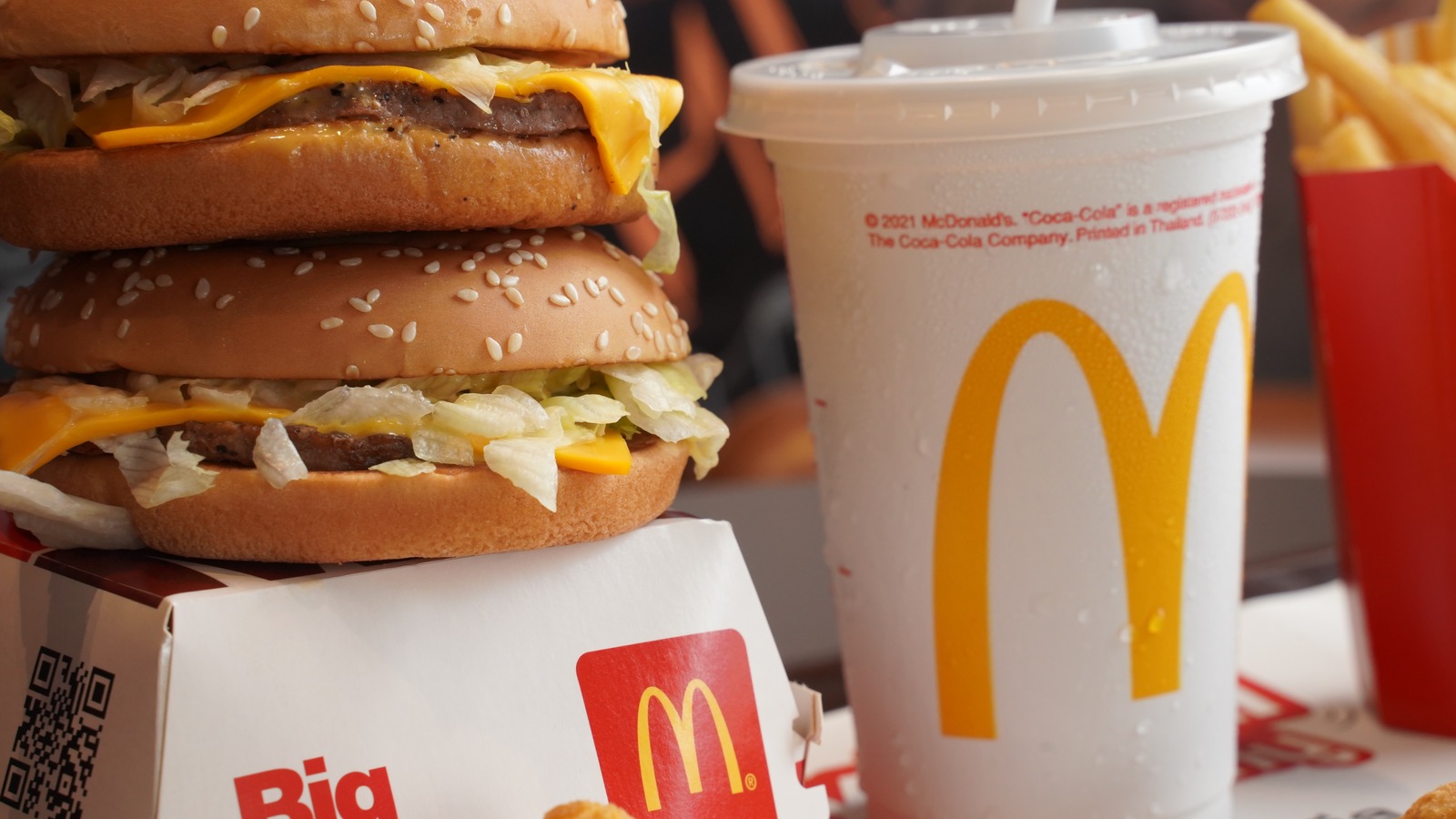Company valuation is something of a nebulous concept. After all, how, exactly, can you describe what a company is or should be worth? Simply use share price, and you’ll be missing out on a huge part of the story, as share prices can be manipulated or split, and they don’t give an accurate valuation number of a company as a whole. One method that’s quite popular among investors and analysts is market capitalization, which does incorporate share price and also the number of shares that a company has outstanding. By this metric, McDonald’s (MCD) had a market cap of over $191.36 billion as of Jan. 28.
McDonald’s has taken a long road to get to a valuation in the hundreds of billions of dollars. The company evolved in two very distinct phases. The original founders, the McDonald brothers, shepherded the first incarnation of the restaurant from its inception in 1940 to its sale in 1961. From there, visionary Ray Kroc, whose name became synonymous with the McDonald’s known and loved the world over today, took over. The rest, as they say, is history.
Here’s a look at McDonald’s current financial position, plus an overview of the company’s history and future projections to help you decide if you should invest in the stock.
| McDonald’s: Company Snapshot | |
|---|---|
| Headquarters | Chicago |
| Year Founded | 1940 |
| Founders | Dick and Mac McDonald |
| CEO | Chris Kempczinski |
Measuring McDonald’s Net Worth
One of the reasons that market capitalization is a popular measure of a company’s worth is that it’s easy to calculate. All you need is a company’s current stock price and its total number of outstanding shares. By way of example, assume a company has five million outstanding shares and a current stock price of $20. That company would have a market cap of $100 million, or five million outstanding shares times its current stock price of $20. McDonald’s has about 747.24 million outstanding shares of stock, so 747.24 million times the stock price of $256.09 on Jan. 28 equals over $191.36 billion.
Because share prices for stocks are all over the map, market cap helps level the playing field when making comparisons. White Mountains Insurance Group, for example, had a share price of $1,024.32 on Jan. 28. This is about four times as much as McDonald’s share price on the same date. But there’s no comparison between the two when it comes to company size as defined by market cap. White Mountains Insurance Group only has 2.98 million outstanding shares, giving it a market cap of just $3.05 billion — well below that of McDonald’s. This example shows how market cap is a more useful way to understand the true size of a company, regardless of its share price.
That said, it’s important to note that market cap is not the only way investors can value a company. In fact, because market cap is tied to a company’s share price, it changes from moment to moment. Market cap is also wholly unrelated to any of the internal financial metrics of the company, such as growth rate, earnings per share or book value. For this reason, many investors prefer to use a metric such as price-to-earnings ratio to evaluate the current valuation of a company.
McDonald’s Market Cap
Market cap can change from moment to moment based on a company’s current share price. McDonald’s stock price has fluctuated quite a bit over the past year:
52-week share price range: $202.73-$271.15
As a result, McDonald’s market cap has also fluctuated considerably over that same time period. It currently sits at $191.36 billion.
McDonald’s Net Worth
McDonald’s net worth as of the quarter ending Dec. 31, 2021 was negative $4.6 billion. It might seem odd for one of the most well-known companies in the world to have a negative net worth, but to a large degree, this is an accounting entry. McDonald’s is most definitely an earnings machine, generating over $1.64 billion in net income just for the quarter ending Dec. 31, 2021.
Of course, methods of determining the valuation of a company are wide and varied, each with its own merits and blind spots.
GOBankingRates uses company data to calculate net worth in a slightly different manner. The GOBankingRates Evaluation of company net worth is a calculation of a company’s worth based solely on concrete, measurable figures like assets and revenue. It’s a more conservative evaluation than most, taking into account only full-year profits and revenue from the last three years and the company’s assets and debts.
By this GOBankingRates metric, McDonald’s has a net worth of $36.53 billion.
| What Is McDonald’s Worth? | |
|---|---|
| Share Price, 52-Week Range | $202.73-$257.53 |
| Fiscal Year 2021 Revenue | $23.22 billion |
| Fiscal Year 2021 Profit | $7.55 billion |
| GOBankingRates’ Evaluation of McDonald’s Net Worth | $36.53 billion |
| All information on the 52-week range is accurate as of Jan. 28, 2022. | |
Some investors prefer net worth over market cap when valuing a company because it represents actual financial value, so much so that “shareholders’ equity” is another way that accountants describe company net worth. Of course, accounting methods can alter the amount of net worth that a company like McDonald’s might report, so it’s not always an authoritative source of a company’s true value.
Did You Know?
Dick and Mac McDonald got everything started back in 1940, when they first opened McDonald’s Bar-B-Q restaurant in San Bernardino, California. The first McDonald’s was a traditional drive-in restaurant with carhop service and a large menu. It wasn’t until 1948 that the founders reinvented the restaurant, converting it into a self-service drive-in and reducing the menu to just nine items. After debuting triple-thick milkshakes in 1949, the McDonald brothers met Multimixer salesman Ray Kroc, who saw the potential in the restaurant and became a nationwide franchising agent in 1954. Kroc took the step of buying out the McDonald brothers in 1961, paying $2.7 million for the rights to the restaurant.
Key Product Lines Contributing To McDonald’s Revenue
For an immense, international, multibillion-dollar company, McDonald’s has a surprisingly simple balance sheet. The revenue the company generates essentially comes from just two broad components: sales by company-operated restaurants and revenues from franchised restaurants.
Sales by company-operated restaurants are self-explanatory. Every time you buy a Big Mac from a company-operated McDonald’s, the corporation itself books the revenue. But for the company’s franchised restaurants, which account for about 93% of McDonald’s restaurants worldwide, the parent company earns money differently.
Rather than booking the direct revenue from sales at franchised restaurants, McDonald’s recognizes revenue from rents, royalties and initial fees paid by franchisees.
Here’s the revenue reported by McDonald’s by operating segment for the fiscal year ending Dec. 31, 2021:
- Sales by company-operated restaurants: $2.538 billion
- Revenues from franchised restaurants: $3.93 billion, comprised of rents and royalties
All in all, the company reported quarterly revenue in excess of $6.01 billion.
Current Top McDonald’s Shareholders
As with many companies, all of the top 10 shareholders of McDonald’s stock are mutual fund companies or asset managers. Overall, institutions own 69.02% of all McDonald’s shares.
Here’s what the list of top 10 shareholders looks like:
- The Vanguard Group, 8.75% of shares
- Blackrock Inc., 6.77% of shares
- State Street Corp., 4.81% of shares
- Wellington Management Co. LLP, 3.6% of shares
- JP Morgan Chase & Co., 1.83% of shares
- Geode Capital Management LLC, 1.68% of shares
- Bank of America Corp., 1.54% of shares
- Northern Trust Investments Inc., 1.29% of shares
- Morgan Stanley, 1.17% of shares
- Wells Fargo & Co., 1.06% of shares
Since mutual funds own a large percentage of McDonald’s stocks, the odds are good that if you’re a mutual fund or exchange-traded-fund investor, you already own a piece of McDonald’s. Here are the percentages of McDonald’s stock that are owned by popular mutual funds and exchange-traded funds:
- Vanguard Total Stock Market Index Fund, 2.82% of shares
- Vanguard 500 Index Fund, 2.10% of shares
- Vanguard/Wellington Fund Inc., 1.43% of shares
- SPDR S&P 500 ETF, 1.08% of shares
- Fidelity 500 Index Fund, 0.98% of shares
- Vanguard Specialized-Dividend Growth Fund, 0.86% of shares
- iShares Core S&P 500 ETF, 0.81% of shares
- Vanguard Growth Index Fund, 0.79% of shares
- Vanguard Institutional Index Fund, 0.77% of shares
- SPDR Dow Jones Industrial Average ETF, 0.73% of shares
How Does the Future Look for McDonald’s?
McDonald’s brand recognition is a huge asset, and it’s hard to bet against industry leaders over the long run. But how has the stock been trading lately, and have earnings been rising fast enough to support future gains?
McDonald’s engine was still humming as 2021 drew to a close. For the quarter ended Dec. 31, 2021, the company reported systemwide sales of over $112 globally, which was a 21% increase. Comparable U.S. sales grew 7.5%, which set a record — the seventh consecutive annual record for U.S. comparable annual sales. Global comparable sales grew 10.8% Diluted earnings per share increased 18% to $2.18 per share.
Looking ahead to 2022, McDonald’s president and CEO Chris Kempczinski said, “We enter this new year with a clear focus on creating seamless and memorable customer experiences and harnessing our momentum to drive long-term, sustainable growth for our stakeholders.”
Should You Invest In McDonald’s?
Investing in any single stock is a risky proposition. Although individual stocks have the potential for significant gains, they can also be volatile and lose money for extended periods of time. That’s why many financial advisors recommend that investors diversify their portfolios, with no single stock comprising more than 5% of a total portfolio.
In addition to analyzing the financials of McDonald’s, you should take a look at your own personal financial situation before deciding to invest in the stock. Define your investment objectives and assess how much risk you’re willing to take with your portfolio before taking the plunge. Consider working with a fiduciary financial advisor to help you understand the pros and cons of stock investments in general and McDonald’s in particular.
Based on Wall Street estimates, McDonald’s might indeed still be a good buy. Fifteen of 33 analysts reported by Yahoo! Finance have a “buy” rating on the stock and eight rate it a “strong buy.” The average consensus price target among analysts is $282.64, about 10%% above its Jan. 28 price of 256.09.
If you’re interested in purchasing McDonald’s stock and need help getting started, talk to one of the best brokers, as ranked by GOBankingRates.
Daria Uhlig contributed to the reporting for this article.
Information is accurate as of Jan. 28, 2022, unless otherwise noted.
Methodology: The GOBankingRates Evaluation assesses a company’s net worth based on the company’s total assets, total liabilities, and revenue and net income from the last three years. Base value is established by subtracting total liabilities from total assets from the company’s last full fiscal year. Income value is established by taking the average of the revenue from the last three full fiscal years, plus 10 times the average of the net profits from the last three full fiscal years, and then calculating the average of those two figures. The final GOBankingRates Evaluation number is the sum of the base value and the income value.
Our in-house research team and on-site financial experts work together to create content that’s accurate, impartial, and up to date. We fact-check every single statistic, quote and fact using trusted primary resources to make sure the information we provide is correct. You can learn more about GOBankingRates’ processes and standards in our editorial policy.







